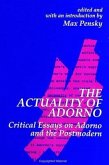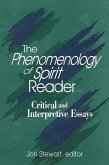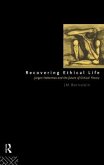This book sets forth an ontological Copernican revolution. By means of a critical phenomenology, it shifts the axis of reflection from the putatively bedrock dualisms in which philosophy was conceived, to our lively, intentional mindbodies that are ontologically antecedent to, beyond the grasp of, yet implicated in, all reflection. In these exercises, reflection's center of gravity is shifted to our mindbodies, whose meditated whatness can be known in all of its forms of appearance--as material objects, organisms, makers, keepers and breakers of promises, husbands and wives, et cetera--and whose unmediated thisness everywhere importunately "shows itself." From this seamless, ontological bedrock, all of our dualisms have been brought forth by reflection. They never cease to be founded there; in action they disappear there. How, on this new foundation, do 'reflection', 'interpretation', 'thinking', 'speaking', 'time', 'hope', and 'memory' come differently to do their work?
Hinweis: Dieser Artikel kann nur an eine deutsche Lieferadresse ausgeliefert werden.
Hinweis: Dieser Artikel kann nur an eine deutsche Lieferadresse ausgeliefert werden.








